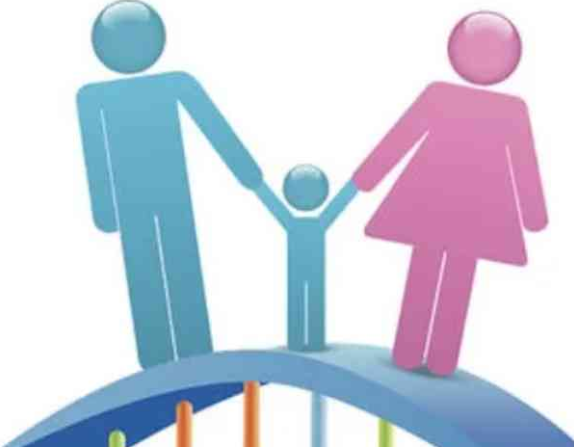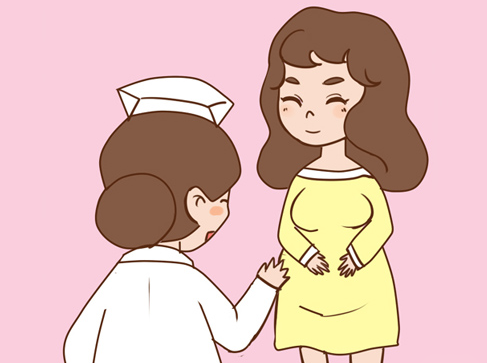Higher age donor egg IVF success rate vs Senior Self Egg IVF Success Rate, What exactly is the best choice for fertility at an advanced age?
In the field of assisted reproduction, more and more senior women with the dream of having children embark on the road of IVF. However, when faced with the two choices of donor egg IVF and self-egg IVF, many people are torn, after all, they have different success rates and each has its own characteristics. Today, let’s have an in-depth chat about the success rate of senior donor egg IVF and senior self-egg IVF, and analyse how to make a suitable choice for senior childbearing, hoping to give some reference and help to friends who are confused.

First, the success rate of high-age self-egg in vitro test tube situation
1. The decline in egg quality affects the success rate
With age, women’s ovarian function will gradually decline, especially at an advanced age (usually refers to 35 years old and above, more obvious after 40 years old), the number of eggs in the sharp decrease at the same time, the quality of the decline is also obvious. The probability of chromosomal abnormalities in the eggs increases dramatically, which results in the formation of embryos with poorer developmental potential after fertilisation, and a lower proportion of good quality embryos, which in turn affects the success of the subsequent transfer of embryos and the likelihood of their continued healthy development.
According to statistics, the success rate of IVF for women aged 35 – 40 is around 30% – 40%; at the age of 40 – 45, the success rate is only 10% – 20%; above the age of 45, the success rate is even lower, often less than 10%, and it is even difficult to get pregnant after several attempts, which is enough to show that the age has a great impact on the success rate of IVF.
For example, Xiaolin, who started IVF at the age of 42, obviously felt that her ovarian function was not as good as it used to be, and the number of eggs she got from each ovulation was very small, and the quality was not good either. After several rounds of egg retrieval, embryo culture and transfer, although the process was very difficult, she was finally lucky enough to get pregnant, but the hardship involved also reflects the reality that the success rate of IVF at this age is really not high.
2. Other changes in body functions affect conception
In addition to egg quality problems, other body functions of elderly women are also changing, such as the endometrium becomes less tolerant and is no longer as ‘fertile’ as it was when she was young, which can well accept the embryo to land; the endocrine system may also be in disarray, the hormone level is unstable, and can not provide a suitable environment for embryo landing and development; at the same time, the overall resistance of the body decreases, and the body is not as strong as when it was young, so it is not possible for embryo to land and develop. At the same time, the overall resistance of the body decreases, and it is easier to suffer from some diseases, all of which will indirectly affect the success rate of IVF.
When Ms Zhang prepared for IVF at the age of 40, she found that not only the quality of her eggs was not very good, but also the endometrial lining of her uterus was thin, so even if there was a slightly better quality of embryo, it would be difficult for it to implant after transfer. After a period of conditioning, through the use of oestrogenic drugs to improve the thickness of the endometrium, endocrine regulation and other measures, only with great difficulty to improve some of the chances of conception, and ultimately a successful pregnancy, which also illustrates the comprehensive impact of the various aspects of the body of elderly women on the success of ovulation in vitro fertilization.
Secondly, the success rate of egg supply in vitro fertilization at an advanced age
1. Egg quality advantage to enhance the success rate
Egg donor IVF, as the name suggests, is the use of other people’s donated eggs for IVF operation. Generally speaking, egg donors are usually young, healthy and strictly screened women, their eggs are relatively good quality, the probability of chromosomal abnormality is low, the possibility of forming high-quality embryos after fertilisation is greatly increased, and when embryos are transferred, the chances of embryos landing and subsequent normal development are also higher, so from the point of view of the key factor of egg quality, egg donor IVF has a certain advantage in terms of success rate.

In reality, for senior women who choose to undergo IVF, if their other physical conditions are good, such as normal uterine environment, relatively stable endocrine system, etc., their success rate can reach about 50% – 60%, which is significantly higher compared to the success rate of auto-ovulation in the same age group.
For example, Ms Chen, 43 years old, chose to undergo IVF after several unsuccessful attempts at auto-ovulation due to her poor ovarian function. The donor was a healthy 28-year-old woman with good quality eggs. Ms Chen’s uterine conditions were also more suitable for embryo implantation, and after embryo transfer, she successfully got pregnant, and the whole pregnancy was relatively smooth, and finally welcomed a healthy and lovely baby, which also reflects the high success rate of IVF under the right conditions.
2. Individual differences still affect the final result
However, although IVF has the advantage of egg quality, the success rate is not absolute, and it is also affected by the physical condition of the woman herself. For example, whether the uterine lining is healthy, whether there is any disease that affects conception (such as uterine fibroids, endometriosis, etc.), whether the endocrine system is able to maintain normal hormone levels to support the development of the embryo, and so on, these individual differences will still affect the final success rate of IVF to a certain extent.
Ms Li chose to undergo IVF at the age of 45. Although the quality of the donor eggs was very good, she suffered from endometrial polyps, which affected the tolerance of the endometrium, resulting in the first embryo transfer being unsuccessful. Later, after hysteroscopic surgery to remove the polyps and regulate the endometrium, she underwent another transfer to get pregnant, which shows that even if it is a donor egg test tube, her own physical condition should not be ignored.
Third, how to choose to have children at an advanced age?
1. Consider your own ovarian function
If after professional examination and assessment, although the ovarian function has declined with age, but still can obtain a certain number of eggs with decent quality, and you want to use your own eggs to conceive a baby and inherit your own genes, then you can try IVF with your own eggs first, and at the same time, cooperate with the doctor to carry out active physical conditioning to improve the quality of the eggs and the environment of the uterine lining in an effort to improve the success rate.
However, if the ovarian function has been seriously exhausted, and it is almost difficult to get usable eggs, or repeated attempts of IVF have failed, then IVF with donor eggs may be an option worth considering, which can bring more hope of success for advanced fertility.
2. Pay attention to the overall health of the body
In addition to ovarian function, it is important to consider the overall health of your body, including the uterine environment, endocrine system, and the presence of other underlying diseases. If the uterus is in good condition, the endocrine system is relatively stable, and there are no serious diseases affecting conception, the success rate will be more guaranteed, whether it is self-egg or donor egg in vitro. On the contrary, it is necessary to treat and regulate the physical problems before deciding which IVF method to choose.
For example, Ms Liu is 41 years old and has normal ovarian function, but her uterus is in good condition and she has no other underlying diseases, so she chose IVF first and focused on lifestyle adjustment and professional doctor’s conditioning during the process, and finally got pregnant. On the other hand, Ms Wang, aged 44, not only had poor ovarian function, but also suffered from severe endometriosis. After weighing her options, she chose donor egg in vitro first, and after dealing with the endometrial problem, she underwent transplantation, and welcomed her own baby, which demonstrates that it is important to make choices based on comprehensive consideration of one’s own physical condition.
3. Weighing psychological and ethical factors
Psychologically speaking, some elderly women are very concerned about the blood relationship between the child and themselves and insist on using their own eggs, even if the success rate is low, while others are more concerned about the success of the baby, and are not so obsessed with the source of the eggs. At the same time, egg supply involves ethical issues, and needs to be carried out through formal and legal channels and in compliance with relevant regulations, which also requires careful consideration and weighing of senior women and their families.
In conclusion, whether to choose donor egg in vitro fertilisation or autologous egg in vitro fertilisation for senior fertility needs to be decided carefully by combining various factors. We hope that every senior woman who harbours a dream of having a baby can make the most suitable choice for herself according to her actual situation, and welcome her own little angel as soon as possible!
Search within the site
Surrogacy News
Hot Tags.
Kyrgyzstan Surrogacy Agency,Global IVF Hospitals,International Surrogate Mother Recruitment